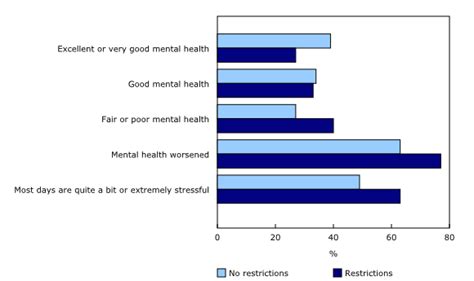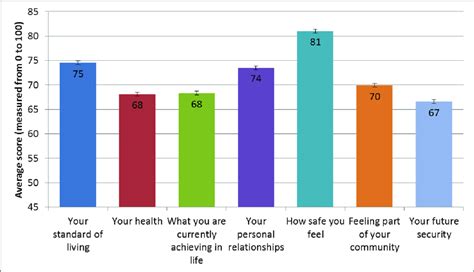Balancing work and family life has become an increasingly important aspect of modern living. With the demands of careers, household responsibilities, and family time, many parents struggle to find a healthy work-life balance. Failing to achieve this balance can lead to stress, burnout, and a lack of personal fulfillment. This article explores the significance of maintaining equilibrium between professional and family obligations, while also emphasizing the crucial role self-care plays in this process. By understanding the challenges and implementing effective strategies, parents can create a more harmonious life, allowing them to thrive in both their careers and their roles as caregivers.
Join domgiz.com as we uncover the details of this topic.
1. Introduction
The demands of modern life make balancing work and family a struggle for many parents. Juggling professional obligations with the responsibilities of running a home and raising children can easily lead to feelings of being overwhelmed and stressed. Achieving a healthy work-life balance is crucial not only for career advancement but also for fostering strong family bonds and personal well-being.
Many parents struggle to balance their time, frequently prioritizing one aspect of their lives at the expense of another. This imbalance can lead to exhaustion, diminished productivity, and strained family relationships. It’s crucial for parents to recognize that achieving balance doesn’t require dedicating equal time to every area of life. Instead, it involves finding a sustainable approach that effectively manages both responsibilities.
Self-care is an essential ingredient in the recipe for work-life balance, alongside managing work and family time. Taking time for oneself allows parents to replenish their energy, maintain their mental and emotional well-being, and ultimately be more present for their families. This article explores the significance of work-life balance, the obstacles parents encounter in achieving it, and practical strategies for harmonizing work, family, and self-care. With the right approach, parents can cultivate a balanced, fulfilling life that nurtures both their professional and family roles.

2. Importance of work-life balance
Maintaining a healthy work-life balance is crucial for parents, as it safeguards their mental, emotional, and physical well-being. By achieving a balance, parents ensure that neither work nor family life overshadows the other, fostering a sense of presence in both domains. This equilibrium leads to reduced stress, enhanced productivity, and stronger bonds with children and partners.
A healthy work-life balance provides numerous benefits, impacting both personal fulfillment and professional success. When parents effectively manage their time between work and family, they often experience increased focus and energy, leading to improved job performance. Furthermore, by modeling a balanced lifestyle, they teach their children the importance of time management, self-care, and prioritizing family connections.
In the end, achieving work-life balance fosters a more harmonious environment, allowing parents to live fulfilling lives while successfully pursuing their career goals and nurturing their family relationships.

3. Challenges of balancing work and family life
Juggling work and family life is a constant struggle for parents. The pressure to excel in both professional and personal realms is relentless. A primary obstacle is time management. Long working hours, meetings, and deadlines, coupled with the demands of raising children, leave little time for family activities, personal care, and relaxation. This constant balancing act often leads to exhaustion and burnout.
A substantial challenge arises from the emotional strain. Parents frequently grapple with feelings of guilt, stemming from the perception that they are insufficiently attentive to their children or neglecting their professional responsibilities. This guilt can generate stress, impacting their mental health and general well-being. Furthermore, the lines between work and home life have become increasingly indistinct, particularly with the surge in remote work, making it more difficult to maintain a clear separation between the two.
Parents often face a double bind of societal and workplace pressures. On one hand, some workplaces foster a culture of complete dedication, making it difficult to prioritize family needs. On the other hand, family members may expect parents to be fully present for activities and emotional support, even when work demands their time.
The challenges parents face make achieving a sustainable work-life balance difficult. Recognizing these obstacles and understanding their impact is crucial, serving as the foundation for developing effective strategies to manage both work and family commitments successfully.

4. Strategies for achieving work-life balance
Striving for work-life balance demands deliberate strategies that empower parents to manage their time and obligations efficiently. A fundamental approach lies in establishing clear boundaries between work and home life. This involves setting dedicated work hours and ensuring family time remains uninterrupted, thereby fostering a structured routine that facilitates focused attention in both domains.
Prioritization is key. Parents should pinpoint the most crucial tasks in both their professional and personal lives and prioritize their completion. Delegating tasks, both at work and at home, can also help alleviate stress and create more time for other important responsibilities.
Another strategy involves cultivating flexibility, recognizing that both work and family life inevitably present unexpected situations. This adaptability empowers parents to adjust priorities without succumbing to feelings of overwhelm.
In conclusion, prioritizing self-care within daily routines is essential. By nurturing their own mental and physical well-being, parents are better equipped to manage the pressures of their professional and familial obligations. A balanced and healthy lifestyle contributes to greater overall well-being and productivity.
5. Benefits of self-care
Self-care is essential for navigating the challenges of work and family. When parents make self-care a priority, they reap significant benefits, including enhanced mental and emotional well-being. Engaging in regular self-care activities, such as exercise, meditation, and pursuing hobbies, can effectively reduce stress and prevent burnout. This allows parents to face both work and family responsibilities with increased resilience and a sharper focus.
Moreover, self-care promotes physical well-being. Getting enough rest, eating a balanced diet, and exercising regularly increase energy levels and overall health, making it easier to cope with daily demands. This enhanced health benefits not only parents but also improves their ability to be fully present and engaged with their families.
Self-care promotes a deeper sense of personal fulfillment. By prioritizing their own needs, parents can revitalize themselves and reconnect with their interests and passions, resulting in increased satisfaction and happiness. This renewed sense of well-being translates into a more positive outlook, stronger relationships, and a more balanced approach to managing work and family life.
6. Tips for practicing self-care
Maintaining a healthy balance between work and family life hinges on prioritizing self-care. Here are some practical tips to help you incorporate self-care into your daily routine:
Establish a Routine: To prioritize your well-being amidst other responsibilities, create a daily schedule that includes dedicated time for self-care. Consistency is key to ensuring you make time for yourself.
Set Boundaries: Establish clear boundaries between work hours and personal time. Avoid blurring the lines by bringing work into family time or vice versa, ensuring a distinct separation between professional and personal life.
Prioritize Sleep: Make sure you get enough rest each night. Quality sleep is crucial for both physical health and mental sharpness. It will also help you handle stress better.
Engage in Physical Activity: Make exercise a regular part of your day. Whether it’s a daily walk, yoga, or a gym session, physical activity is a great way to boost your energy levels and reduce stress.
Practice Mindfulness: Engage in techniques such as meditation, deep breathing exercises, or journaling to maintain a sense of groundedness and effectively manage stress. These practices can significantly enhance mental health and promote a greater sense of overall well-being.
Make Time for Hobbies: Engage in activities that bring you joy, such as reading, crafting, or gardening. Hobbies offer a path to relaxation and a sense of personal accomplishment.
Reach Out for Help: When facing challenges, don’t hesitate to turn to your loved ones, friends, or professionals for support. These networks can offer invaluable assistance and emotional comfort.
By incorporating these tips into your daily routine, you can significantly improve your self-care practices, ultimately leading to a more balanced and fulfilling life.
7. Conclusion
In conclusion, a balanced work and family life is essential for overall well-being and personal satisfaction. Juggling professional responsibilities and family duties can be demanding, but acknowledging these challenges is the first step towards finding effective solutions. By prioritizing work-life balance, parents can improve their time management skills and reduce stress, resulting in a more harmonious and fulfilling life.
Self-care is essential for maintaining a healthy balance in life, offering a range of benefits that positively impact mental, emotional, and physical well-being. By incorporating self-care practices into their routines, such as setting boundaries, prioritizing sleep, and engaging in physical activity, parents can effectively recharge and approach their responsibilities with renewed energy and clarity. Furthermore, pursuing personal hobbies and seeking support from others can significantly enhance their overall well-being.
A harmonious balance between work and family life, coupled with unwavering self-care, empowers parents to flourish in both spheres. By employing practical strategies and making self-care a non-negotiable priority, parents can build a more sustainable and enriching existence, benefiting both themselves and their families. Adopting these practices cultivates a more positive and productive environment, paving the way for a healthier, more fulfilling daily life.
domgiz.com

